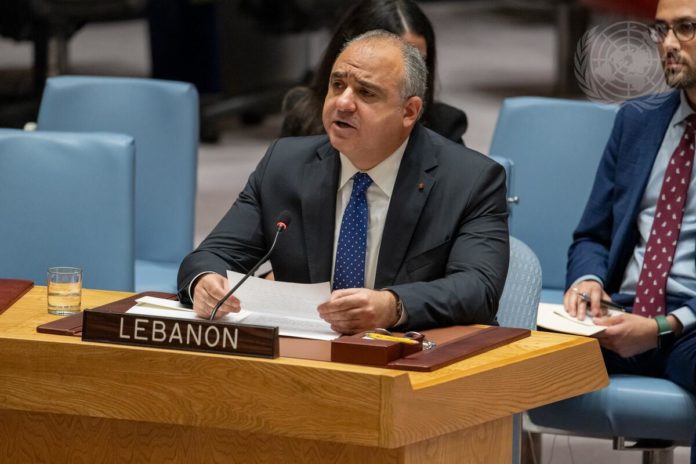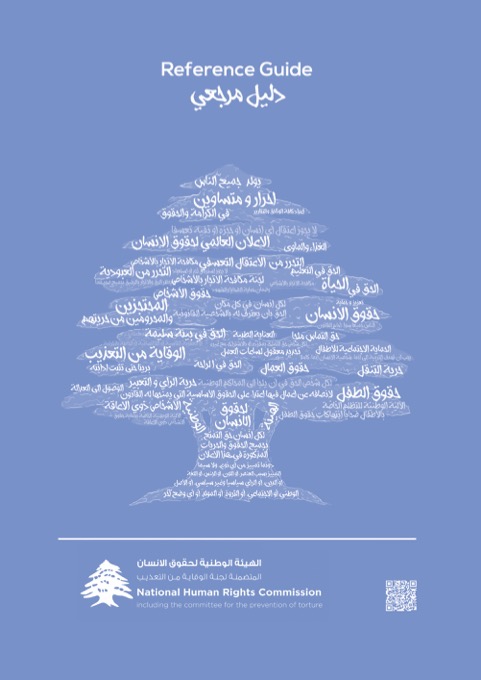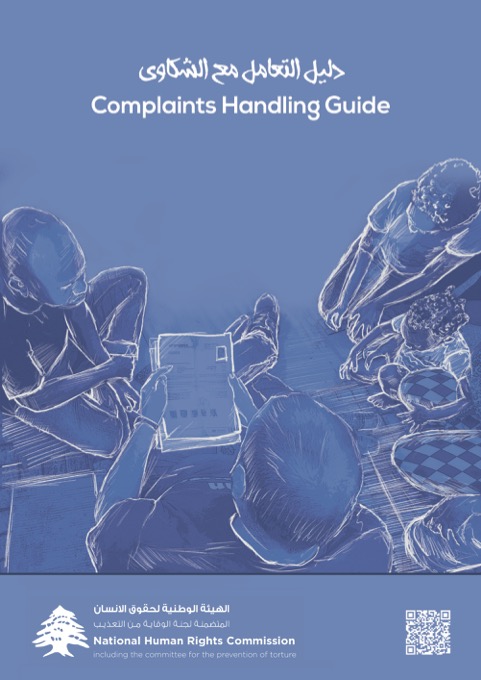هذا التقرير متاح أيضًا بـ: العربية (Arabic)
The National Human Rights Commission, including the Committee for the Prevention of Torture, proposes that the Lebanese government endorse and support the draft Convention on the Prevention and Punishment of Crimes Against Humanity, which is currently under discussion in the Sixth Committee of the United Nations General Assembly.
This proposal is based on the Commission’s mandate to monitor Lebanon’s compliance with human rights and international humanitarian law, in accordance with Article 15, paragraph (b-1) of Law No. 62 of October 27, 2016 (establishing the National Human Rights Commission, including the Committee for the Prevention of Torture), and its subsequent amendments.
The National Human Rights Commission of Lebanon (NHRC), which includes the Committee for the Prevention of Torture (CPT) calls on the Lebanese government to strongly and publicly support the adoption of a UNGA resolution providing for the prompt elaboration of a Convention on the Prevention and Punishment of Crimes against Humanity on the basis of the International Law Commission (ILC) Draft Articles. In this light, we ask Abdallah Bou Habib, the caretaker Minister of Foreign Affairs and Emigrants of Lebanon, to consider the approval of the Council of Ministers signing on to the text of a draft resolution that will be circulated prior to the session of the Sixth Committee starting in October 2024 and mandate the Lebanon Permanent Mission to the United Nations co-sponsoring it upon its formal introduction. NHRC-CPT also called on Prime Minister Najib Mikati to support this decision and include it on the Cabinet’s agenda as soon as possible.
NHRC-CPT strongly believes that the adoption of a convention on the prevention and punishment of crimes against humanity will close a real gap in international law and strengthen efforts to combat impunity for perpetrators of these crimes.
There remains a pressing need for a specialized international treaty that offers additional mechanisms to prevent crimes against humanity, ensure justice, establish the truth, and provide reparations to victims. The Convention would also provide a comprehensive framework enabling all States to incorporate these crimes into their national laws and prosecute those responsible.
Background
Although crimes against humanity are among the most serious crimes in international law, there has yet to be a treaty regulating their prevention and punishment. A treaty on crimes against humanity would close a crucial gap in the current international framework on mass atrocities as well as clarifying states’ duties to prevent such crimes and means to cooperate with each other. A crimes against humanity treaty can also rightfully contribute to global affirmation of the gravity of these crimes.
In 2013, the UN’s International Law Commission approved crimes against humanity to be included in its programme of work. The Commission, in 2019, recommended the elaboration of a convention by the UN General Assembly or by an international conference.
In 2022, the UN’s Sixth Committee adopted resolution 77/249 to take forward steps for a treaty on crimes against humanity, including two interactive sessions in 2023 and 2024 on the Draft Articles, and a plan to take a decision on the ILC’s recommendation that a treaty go forward in the 79th session of the General Assembly.
The Sixth Committee of the United Nations General Assembly considered the draft articles on the prevention and punishment of crimes against humanity, adopted by the International Law Commission in 2019, during two resumed sessions in April 2023 and April 2024. Throughout the Committee’s deliberations, States exchanged substantive views on all aspects of the draft articles and reviewed all observations and proposals submitted in writing by States in December 2023.
During the upcoming 79th session of the United Nations General Assembly, the Sixth Committee will again consider the agenda item on ‘crimes against humanity’ in October and November 2024. This time, it will pave the way for discussions and decisions on the International Law Commission’s recommendation regarding ‘the elaboration and formulation of a convention at a meeting of the General Assembly or an international conference of plenipotentiaries, based on the draft articles for the convention.


